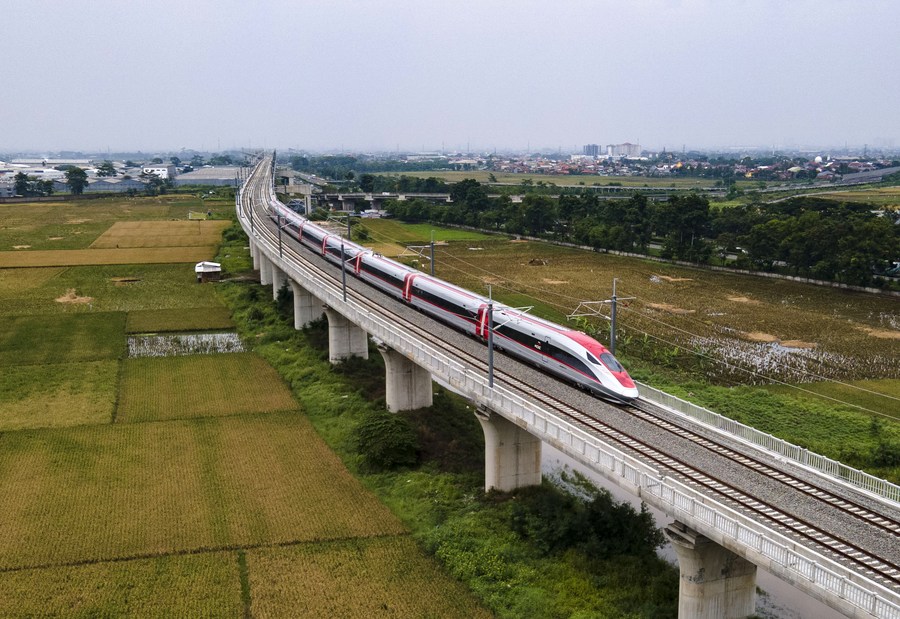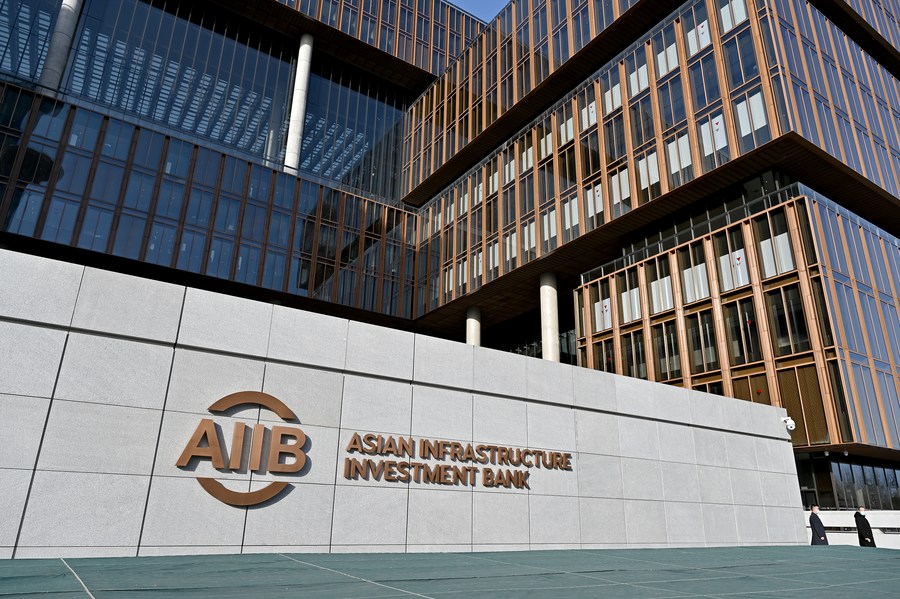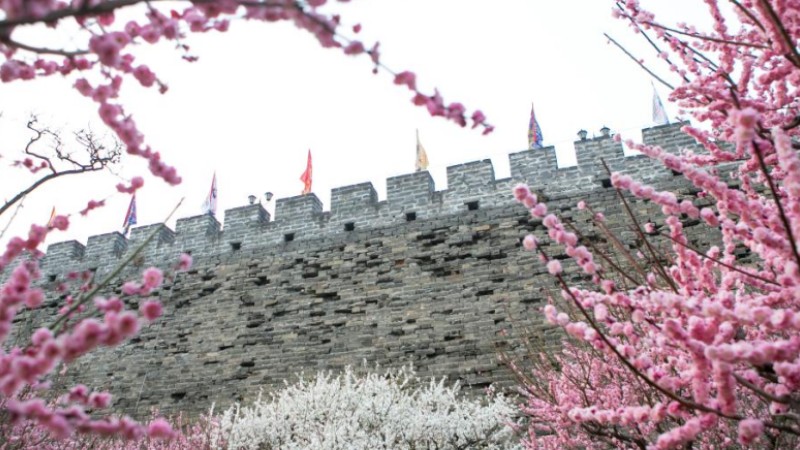Commentary: Ten years on, China-proposed vision on community with shared future boosts world prosperity, stability

Aerial photo taken on Nov. 9, 2022 shows a test run on the Jakarta-Bandung High-Speed Railway trial section in Bandung, Indonesia. The railway is a flagship project that synergizes the China-proposed Belt and Road Initiative and Indonesia's Global Maritime Fulcrum strategy. (Xinhua/Jiao Hongtao)
BEIJING, March 23 (Xinhua) -- A decade after the concept of a community with a shared future for mankind was proposed, the Chinese flagship vision is becoming a great banner for building a better, more prosperous world.
The vision has met the global need for shared growth in times when economic globalization faces strong headwinds and the whole world is perplexed by the deficits in peace, development, security and governance.
Chinese President Xi Jinping first put forward the concept of a community with a shared future for mankind in March 2013 when speaking at the Moscow State Institute of International Relations. The important concept has since evolved into a vision with global significance.
With an eye to the common interests and future of the whole of humanity, the vision has pushed for an open, inclusive, clean and beautiful world with lasting peace, universal security, and common prosperity. Instead of pursuing hegemony, expansion or sphere of influence, China has remained steadfast in peaceful and open development.
However, some Westerners smear the vision as a "China-centric" scheme. This rhetoric not only neglects what China has emphasized and advocated, but also repeats the cliche of ideological confrontation.
Building a community with a shared future for mankind does not mean replacing one system or civilization with another, but it creates the greatest synergy for building a better world where countries with different social systems, ideologies, histories, cultures and levels of development come together to champion shared interests, shared rights and shared responsibilities in global affairs.
In fact, China has been advocating for global collaboration in reforming and enhancing the global governance system, with the aim of making the international order more just and equitable.
As a permanent member of the UN Security Council, China has been a major contributor to UN peacekeeping operations, maritime escort missions, and humanitarian relief efforts.
In addition to its endeavor to support the global governance system, China has been advocating for an open world economy and promoting more balanced, inclusive, and sustainable development. China put forward the Belt and Road Initiative (BRI) to foster new drivers for global development.
To date, 151 countries and 32 international organizations have signed documents under the BRI framework, bringing an economic boon to participating countries. As a high-quality public good jointly built by all partners, the BRI has brought nearly a trillion U.S. dollars of investment, established over 3,000 cooperation projects, created some 420,000 jobs in countries along the routes, and helped lift nearly 40 million people out of poverty in the past decade.
From transport projects like the China-Laos Railway, to industrial projects such as the China-Egypt TEDA Suez Economic and Trade Cooperation Zone, the BRI has incentivized local and regional development and delivered enormous benefits to the world.
Multilateral financial institutions, such as the Asian Infrastructure Investment Bank (AIIB) and the New Development Bank, have provided important financial support for the development of the Belt and Road countries.

Photo taken on Jan. 13, 2021 shows the headquarters building of the Asian Infrastructure Investment Bank (AIIB) in Beijing, capital of China. (Xinhua/Li Xin)
As of October 2022, AIIB had approved 191 projects, playing a positive role in fostering infrastructure development in areas such as transport, energy, water resources and public health.
In 2021, President Xi proposed the Global Development Initiative, which puts development first and the people at the center, and seeks to expedite the implementation of the 2030 Agenda for Sustainable Development.
China has always stood firm in its commitment to multilateralism and the common values of mankind. In 2022, Xi proposed the Global Security Initiative (GSI), which aims to create a new path to security featuring dialogue over confrontation, partnership over alliance, and win-win over zero-sum.
The recent Saudi Arabia-Iran dialogue in Beijing epitomized the principle advocated by the GSI. The resumption of diplomatic ties between the two countries, thanks to China's efforts of mediation, injected stability into the region, and has since been widely acclaimed by the international community.
In short, the community with a shared future for mankind embraces differences among different countries, rather than abetting the ideological split or sowing a Cold War mentality.
Last week, Xi, also general secretary of the Communist Party of China (CPC) Central Committee, proposed the Global Civilization Initiative at the CPC in Dialogue with World Political Parties High-Level Meeting. Under the initiative, Xi called for respect for diversity of civilizations, advocating the common values of humanity, highly valuing the inheritance and innovation of civilizations, and jointly advocating robust international people-to-people exchanges and cooperation.
Every country has its own national conditions and unique features, and should be respected by other countries. Humanity's modernization should not be a one-flower show, but a hundred flowers in bloom.
Over the past decade, the concept of a community with a shared future for mankind has been formally included in crucial documents of the United Nations and other international organizations or groups.
China did not just talk the talk, but more importantly, it walked the walk.
The fight against the COVID-19 pandemic highlights the necessity of building a global community of health for all. China has supplied more than 2.2 billion COVID vaccine doses to over 120 countries and international organizations, and dispatched 38 teams of medical experts to 34 countries in need.
While advancing its modernization, China will also strive to promote the building of a community with a shared future for mankind. There is no doubt that the human future-oriented vision will bring greater prosperity, stability and welfare to all over the next decade and beyond.
Photos
Related Stories
- Interview: China-proposed vision for a shared future resonates in int'l community, says British expert
- China provides solution for building secure, stable world
- China to persist in development of human community with shared future: vice FM
- Interview: Building community with shared future for mankind a visionary concept, says Croatian ex-president
- Interview: China as role model for building community with shared future for mankind: Indian politician
Copyright © 2023 People's Daily Online. All Rights Reserved.









